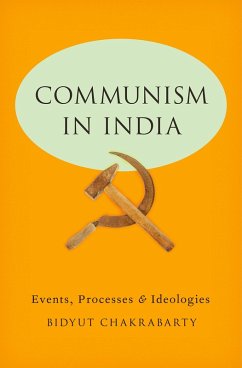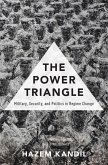In
Communism in India, Bidyut Chakrabarty-an expert on contemporary Indian political economy and social movements-presents a sweeping analysis of the changing nature of communist ideology over the past century in India. The history and development of India's left movements are unique in that the country is home to two coexisting strands of modern communism. The first of these is the parliamentary Communist Party of India, which constituted the first democratically-elected Marxist government in the country. The parliamentary left subscribes to a social-democratic philosophy, turning to the traditional democratic institutions of governance in their quest to fulfill the Marxist-Leninist goal of establishing a classless society. The second, oppositional, strand is the revolutionary Maoist movement. This branch rejects parliamentary democracy as a means to altering class-relations, as they see the government as an elite organization dedicated to the status quo and age-old system of class exploitation. Drawing on ethnographic field work conducted in Orissa, Chhattisgarh and West Bengal, Chakrabarty provides a contextual account of the rise, consolidation, and decline of these two types of left radicalism. He looks at how it is that left ideology has coexisted with free-market-oriented economic policies, as well as the contexts in which more militant strands have taken root, particularly among the young in poorer districts.
Dieser Download kann aus rechtlichen Gründen nur mit Rechnungsadresse in A, B, BG, CY, CZ, D, DK, EW, E, FIN, F, GR, HR, H, IRL, I, LT, L, LR, M, NL, PL, P, R, S, SLO, SK ausgeliefert werden.









